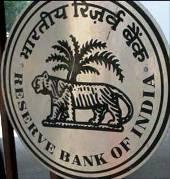 | « Back to article | Print this article |
 The Reserve Bank of India has proposed a host of measures to boost the returns on Indian companies’ investments in their joint ventures and wholly owned subsidiaries abroad.
The Reserve Bank of India has proposed a host of measures to boost the returns on Indian companies’ investments in their joint ventures and wholly owned subsidiaries abroad.
These include exemption of dividend payout from tax, besides credits for corporation tax paid by the arms of JVs in host countries.
The proposals assume importance as these returns are part of the country’s current account balance, which has been a major source of worry for the government lately.
At a meeting of the inter-ministerial committee on overseas investment recently, RBI mentioned that inflows from huge investments made abroad by Indian firms had been minuscule.
It mooted the idea to exempt dividend received from the overseas JVs or wholly owned subsidiaries from tax.
Budget 2013-14 has extended the concessional rate of tax (15 per cent) on these dividends for another year -- up to the 2014-15 assessment year.
In the Budget for 2011-12, the finance ministry had announced this rate, against 30 per cent payable earlier.
The RBI proposals have been sent to the Department of Revenue for consideration.
RBI has suggested there is a need to prescribe certain terms and conditions for loans extended by Indian companies to their JVs or wholly owned subsidiaries abroad.
These include mandatory and pre-decided fixed-tenure interest rate and repayment schedule for loans.
The central bank has argued such conditions will lead to discipline in respect of loans availed of by overseas entities from their Indian parents and, thereby, commensurate inflow into the country by the way of principal repayment and interest.
Another proposal mooted at the meeting includes allowing multi-layer structure for Indian companies overseas.
It says firms should be allowed to have structures with step-down subsidiaries as holding companies or special-purpose